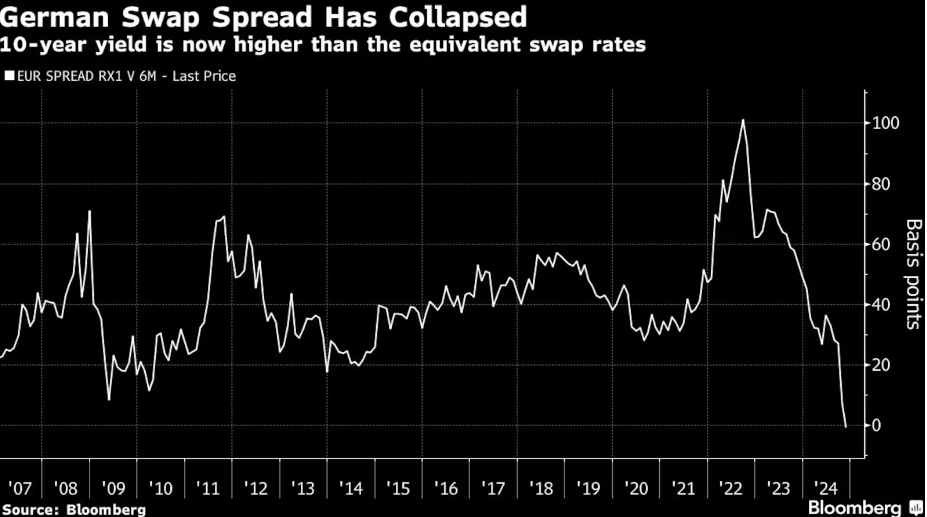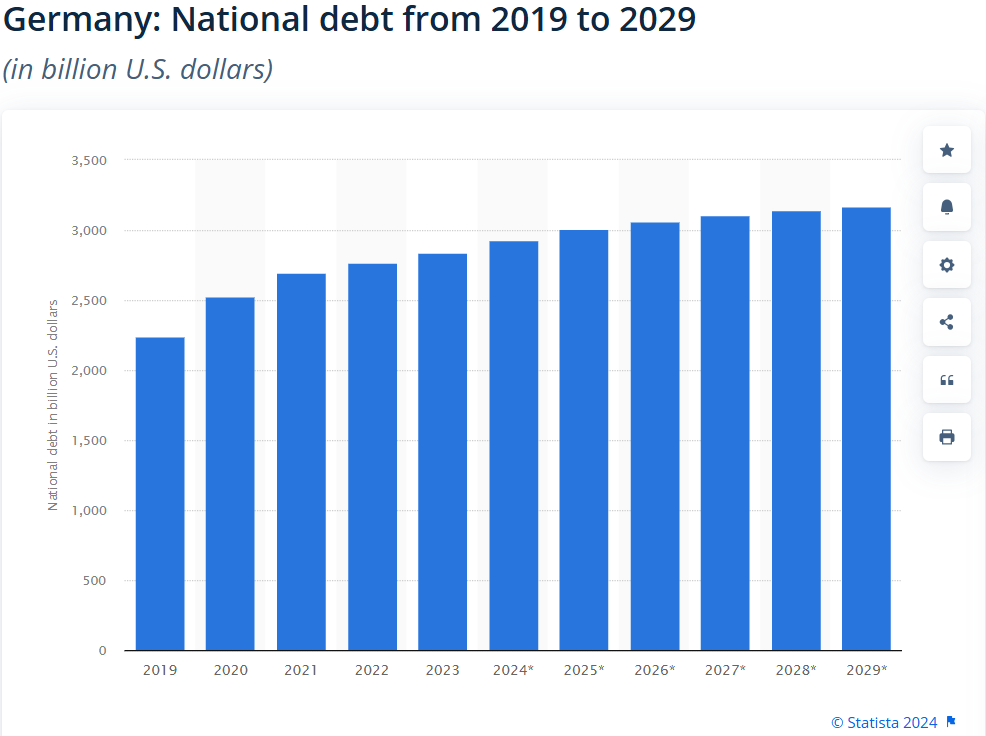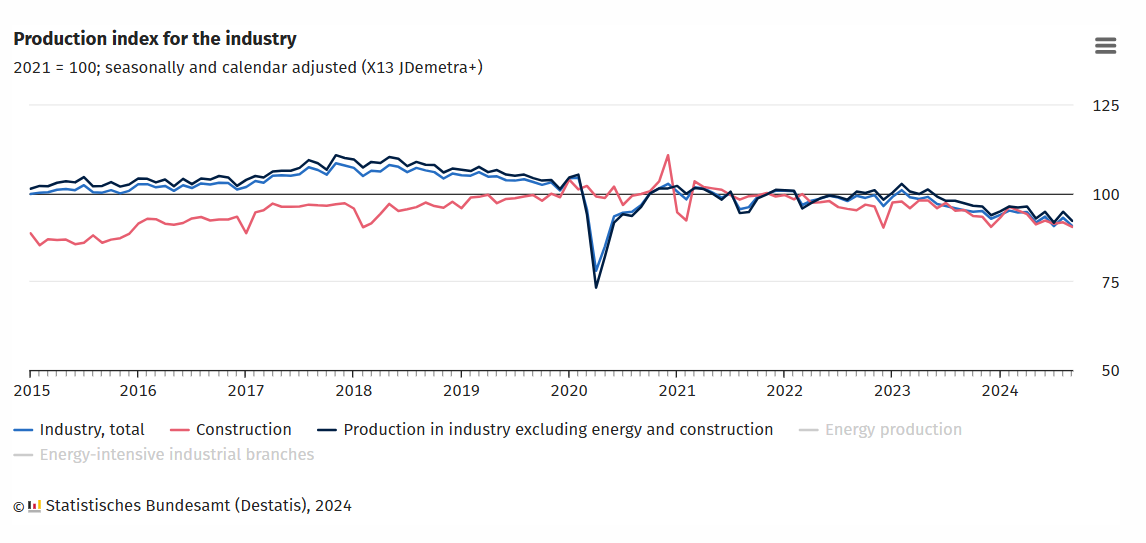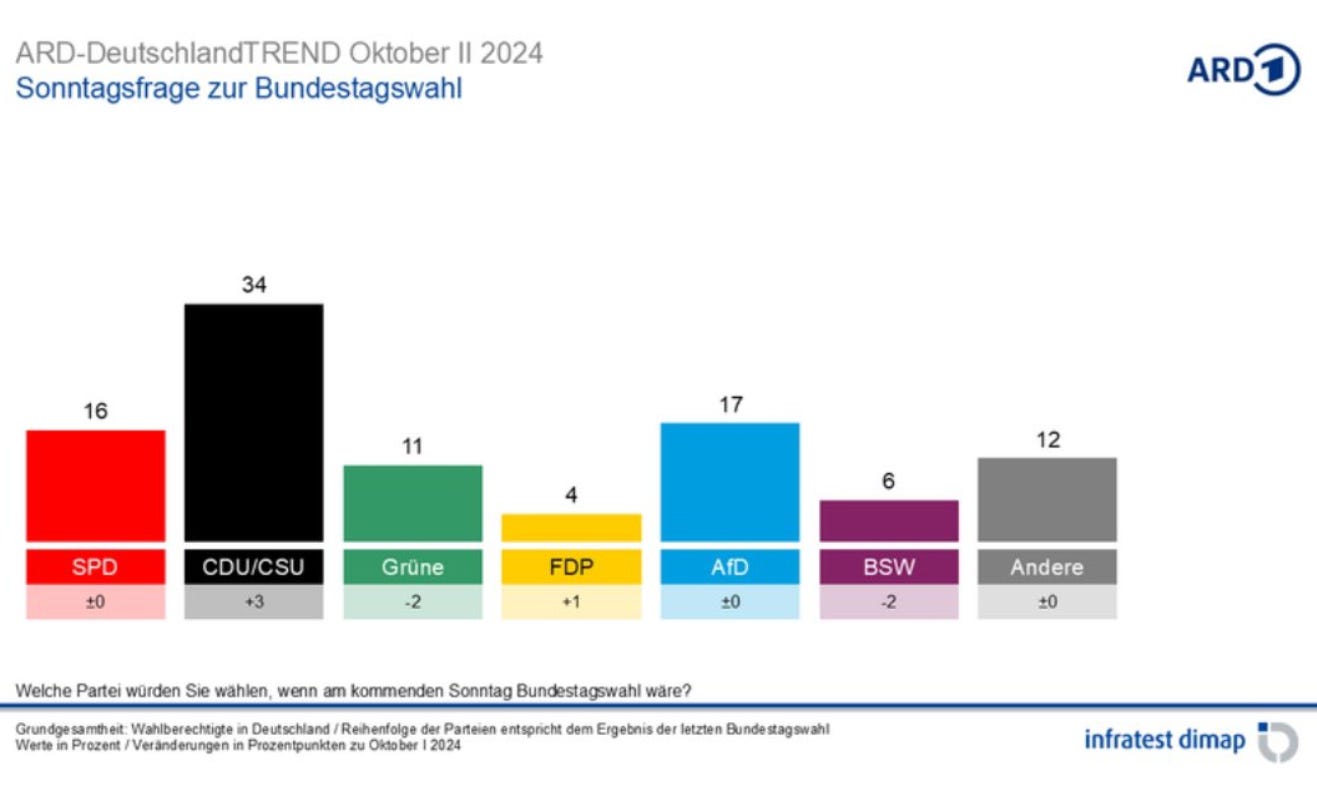The German coalition collapse will further stress Europe's largest economy, one already mired with problems at home and abroad.
Chancellor Olaf Scholz fired Finance Minister Christian Lindner on Wednesday after weeks of government disputes about the ailing economy. Scholz now leads a minority government until fresh elections in January after the embattled leader rejected an earlier no-confidence vote.
The government collapse has left the European powerhouse rudderless during significant economic and geopolitical uncertainty. It could weaken Berlin's influence as Europe navigates its relationship with the US after Donald Trump won the elections.
The chancellor "did not want to take this step," Robin Quinville, Director of the Global Europe Program at the Washington-based Wilson Center, said. "But he was pushed to it by the clear differences in approach between him and the finance minister."
Economic Differences Cause German Coalition Collapse
Scholz fired Lindner, a member of the Free Democrats (FDP) and coalition partner, for blocking his economic plans. Scholz's push for greater government investment to spur growth clashed with Lindner's prudent approach to fiscal spending.
Scholz accused Lindner of showing "no willingness to implement any of our proposals," adding that there was "no trust basis for any future cooperation." Linder accused Scholz of pushing him to break his "oath of office" with "an ultimatum to suspend the constitutional debt brake."
After the coalition collapsed, the German 10-year yield climbed above the equivalent swap rate for the first time on record. In another sign of growing fiscal concerns, the 30-year yield jumped more than the two-year, lifting the spread toward the highest in more than two years, Bloomberg reported.

"The way toward more debt will most likely become easier without a finance minister Lindner," Commerzbank AG strategist Hauke Siemssen wrote in a note.
However, a delay in next year's budget suggests a lack of spending and little likelihood of passing an economic plan proposed in July that could add almost €26 billion to Germany's economic output.
German Coalition Were Unlikely Partners
Scholz's Social Democratic Party (SPD), the FDP, and the Greens had formed the coalition government. Analysts had considered the coalition an unlikely match given their different positions on fiscal policy.
The SPD and the Greens are considered left-wing parties that support greater government spending for social and environmental policies. The FDP is a business-focused party that advocates for a free market and a fiscally conservative approach.
Joerg Kukies, a Scholz ally, former Goldman Sachs investment banker, and now deputy finance minister, has been chosen to replace Linder as finance minister, Reuters reported.

"Months of acrimonious infighting and an ever-shrinking consensus among the three unlikely partners contributed to a gloomy outlook for Germany's economy," the Washington-based Atlantic Council wrote.
"Any concerted government effort to address structural economic challenges to Germany's economy and thereby revive Europe's once much-envied engine of growth repeatedly failed amid competing proposals, leaks, and public recriminations."
German Coalition Collapse Weighs on Sentiment
In addition to political infighting, Germany's economy has failed to grow amid high energy prices and slow growth in China. The latest economic data will weigh on economic sentiment.
The Federal Statistical Office (Destatis) reported on Thursday that industrial production dropped 2.5% in September compared with August. Automobile production declined by 7.8% month-on-month compared with an increase of 15.4% in August, Destatis data showed.

"This larger-than-expected fall erased most of the gains registered in August and reflects a renewed bout of weakness for the country’s manufacturing base," Oxford Economics said in a note. "The industrial turnaround is not there yet, as demand remains soft and structural challenges acute."
Germany's September exports declined 1.7% on a calendar and seasonally adjusted basis compared with August, Destatis reported on Thursday. Exports decreased by an annual 0.2%, while imports rose 1.3% compared with September 2023.
Scholz Faces Uncertain Future After German Coalition Collapse
Scholz has called for a confidence motion in his government for January 15, Reuters reported. The opposition can only push him out earlier if they can find a majority for a specific alternative chancellor.
German President Frank-Walter Steinmeier said he would not make use of his power to block Scholz’s push for early elections. But there is no certainty that Scholz will be able to maintain power when the election is held.
The country is divided politically. The far-right Alternative für Deutschland (AfD) and the communist BSW have emerged as "political insurgents."
The coalition "is falling apart while the polls look like this: AfD ahead of all government parties," Isabella M. Weber, an author and economics professor at the University of Massachusetts, said on X.

The Wilson Center's Quinville said Scholz's SPD faces an "uphill battle" with polls currently showing them at about 16%. "They don’t have a great track record from the elections in Eastern Germany earlier this year," she said.
This could ultimately weaken Berlin's role in Europe. "Whenever you have a strong player that is then consumed by domestic politics, it leads to a weakening of that voice within the EU," Quinville said. "And that is what will happen as this plays out."
Disclaimer:
Any opinions expressed in this article are not to be considered investment advice and are solely those of the authors. European Capital Insights is not responsible for any financial decisions made based on the contents of this article. Readers may use this article for information and educational purposes only.
This article is from an unpaid external contributor. It does not represent Benzinga’s reporting and has not been edited for content or accuracy.
© 2025 Benzinga.com. Benzinga does not provide investment advice. All rights reserved.
Trade confidently with insights and alerts from analyst ratings, free reports and breaking news that affects the stocks you care about.